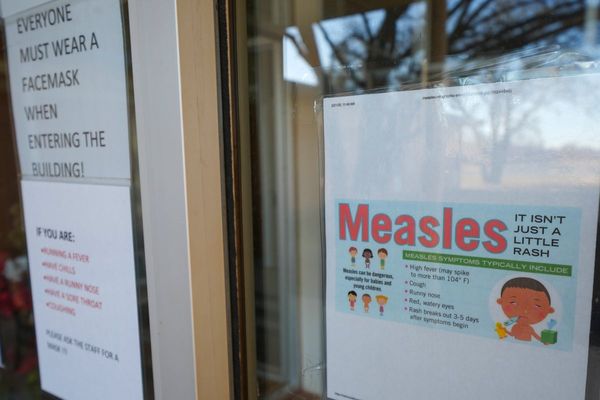
Jamaica has appointed a “special fact-finding team” to investigate the working conditions of Jamaicans employed on Canadian farms, after workers in the province of Ontario said last month that they faced “exploitation at a seismic level“.
In a statement shared on social media on Thursday, Jamaica’s Minister of Labour and Social Security Karl Samuda said a six-person team would “travel to Canada to observe operations and speak with workers on the farms, and provide a report to the Minister”.
The brief statement did not provide any additional information, such as which farms the team members will visit or when the trip to Canada would take place. “Further details will follow,” it said.
A group of Jamaican farmworkers sent a letter to Samuda in August denouncing their treatment on two Ontario farms, which they likened to “systematic slavery”.
***Media Release***
Minister of Labour Appoints Fact Finding Team for Canada https://t.co/6eII4wN9gI— MLSS Jamaica (@JamaicaMlss) September 1, 2022
The workers, who were not named for fear of retribution, said they were in Canada under the Seasonal Agricultural Worker Program (SAWP), a decades-old scheme that allows Canadian employers to hire temporary migrant workers from Mexico and 11 countries in the Caribbean to fill gaps in the country’s agricultural labour market.
Foreign workers brought to Canada through SAWP can have jobs for up to eight months in the year, and many people have been coming to the country for decades under the programme.
“As it currently stands, [SAWP] is systematic slavery,” the farmworkers said in their letter, which came just days before Samuda came to Canada to tour farms employing workers from Jamaica.
“We work for eight months on minimum wage and can’t survive for the four months back home. The SAWP is exploitation at a seismic level. Employers treat us like we don’t have any feelings, like we’re not human beings. We are robots to them. They don’t care about us,” the workers said.
But after his trip, Samuda said in a statement sent to Al Jazeera last week that he observed “no evidence of mistreatment” on the Ontario farms he visited.
“We observed no evidence of mistreatment,” said the minister, stressing that SAWP is “absolutely essential to thousands of Jamaican families, many rural communities, and the entire [country of] Jamaica”.
In a more detailed statement shared on Friday morning, the Jamaican labour ministry said it received support from the Canadian government for its fact-finding mission.
Canada’s High Commissioner to Jamaica, Emina Tudakovic, “gave her government’s commitment to support tactical solutions identified by the task force to improve conditions wherever necessary”, the ministry said.
Between 50,000 and 60,000 foreign agricultural labourers come to Canada annually on temporary work permits. They work in various roles, from the planting and harvesting of fruits and vegetables, to meat processing.
But for years, human rights groups have reported a range of issues with SAWP and other migrant labour programmes. Advocates have said a major problem is that temporary foreign workers are tied to their Canadian employers, which means they are effectively not allowed to work for anyone else.
Foreign workers have reported living in crowded, substandard housing, and many said they fear retribution – such as being deported or barred from coming back to Canada for the next season – if they raise concerns with their bosses.
In a statement on Thursday, the Migrant Workers Alliance for Change, an advocacy group that the Jamaican farmworkers are members of, said the workers “are ready to discuss the letter” sent to Samuda last month.
The group said the workers are also ready to hold talks with Canadian Prime Minister Justin Trudeau and Minister of Immigration Sean Fraser to reiterate their call for permanent residency for all temporary foreign workers, refugees, students, undocumented people and others in Canada.
The workers and their supporters have said permanent immigration status is the best way to help guarantee that their rights will be protected.
Asked if Ottawa planned to give temporary migrant farmworkers a path to permanent residency, a spokesperson for Immigration, Refugees and Citizenship Canada (IRCC) told Al Jazeera last month that the government is exploring ways to help foreign nationals transition from temporary to permanent status.
Minister Samuda – Jamaican farmworker members of @MWACCanada are ready to discuss the letter we wrote. Email us at info@migrantworkersalliance.org
We are ready to do the same for PM @JustinTrudeau & Immigration Minister @SeanFraserMP to show the urgent need for #StatusforAll https://t.co/AhtTYPjN0P
— Migrant Workers Alliance for Change (@MWACCanada) September 1, 2022







